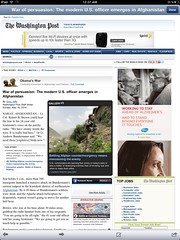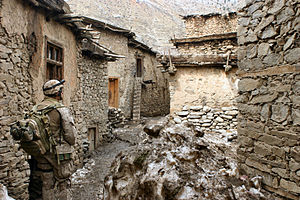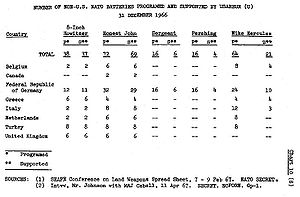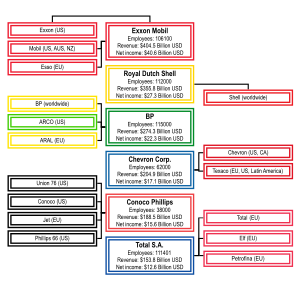 Image by Wesley Fryer via Flickr Full Text of Fidel Castro’s Message to the Students
Image by Wesley Fryer via Flickr Full Text of Fidel Castro’s Message to the Studentsdrifting off of imperial power towards fascism
“What kind of world is this? What kind of world is this where a barbaric empire proclaims its right to launch pre-emptive attacks on 60 or more countries, and is capable of bringing death to any corner of the globe, using the most sophisticated weapons and killing techniques?”
“Even today, the empire is threatening to attack Iran if nuclear fuel is produced there.”
“…anywhere in the world you can find a secret prison where defenders of human rights are tortured. They are the same people who order their little lambs to vote in Geneva, one after another, against Cuba, a country where torture is unknown, something that brings honor and glory on this generation.
This morning there was news about the use of live phosphorus in Fallujah. It is there that the empire discovered that a nation, to all intents and purposes unarmed, could not be defeated and the invaders found themselves in the situation of not being able to leave or to stay. If they leave, the combatants would return; if they stay, these troops would be required in other locations. Over 2,000 young US troops have already died, and some are asking: How long will these men continue to give their lives for an unjust war
“…in spite of the differences between human beings, they can become as one in a single instant or [...]they can be a million strong just through their ideas.”
“Ideas make us a combatant people on a collective and not just an individual basis; ideas make us a mass of revolutionaries. Then, the people can never be defeated…”
“…90 miles away from the colossal empire, the most powerful empire ever in the history of the world. Forty five years have passed and there it is, farther away than ever from the possibility of forcing the Cuban nation to its knees, the same nation they humiliated and offended for some time …”Almost 15% of US households experienced a food shortage at some point in 2009
Police force to lose almost 3,000 jobs
( Think that's so they can hire more 'security' clowns at the airports ? )
Teaching Children the Art of Philosophy
Studies show drug-resistant bug threats in Europe
Russian Troops Dying Amid Cruelty Claims
280,000 soldiers are in the process of being conscripted right now. For these young men, a life of humiliation and brutality seems almost inevitable.
Timetable Abandoned: U.S. And NATO To Wage Endless War In Afghanistan
On October 25 Edmund Whiteside, North Atlantic Treaty Organization Council Secretary, spoke at Concordia University in Montreal, Canada, and according to the local press said, “Expect the war in Afghanistan — the longest military engagement in both Canadian and American history — to continue for a ‘very long’ time.” In his exact words, “Afghanistan will be a very long military venture
...the amount of air strikes conducted in Afghanistan in October – approximately 1,000 – was the highest monthly total in the war that began in 2001, up from 700 the previous month, which itself marked a 172 per cent increase over September of 2009.
The article also detailed that the amount of American and NATO combat sorties so far this year, 26,948, exceeds the previous high of 26,474 from last year. “Instead of using the laborious technique of capturing alleged terrorists from their hideouts in crowded cities and remote villages, the drones just bomb the house or village where the suspects are holed up. In the process, there has been huge collateral damage. Innocent civilians killed far outnumber those killed in the fight against the occupation.
“Ever since he took office two years ago, Obama has made the deadly drones a key instrument in his fight against the militants in Afghanistan and Pakistan. The drones are also being used liberally to target militants in Yemen and Somalia.”
The Afghan war in its tenth year has expanded into a far broader conflict, one which grows in both scope and lethality with each passing week and will escalate yet further before it begins to wind down, if it ever does.
 Image via WikipediaWant To Cut Defense? Maybe Give The Military a Breather, Then
Image via WikipediaWant To Cut Defense? Maybe Give The Military a Breather, Then
Get the defense-budget debate back to first principles: what’s the role of the U.S. military after the Iraq and Afghanistan wars end? (Um, assuming they’ll actually end.) Adams criticized the Pentagon’s recent mega-strategy document, known as the Quadrennial Defense Review, as a “layercake of missions with no set of priorities [and] no effort to say which are acceptable risks and which are unacceptable risks,” making it hard to identify sensible missions to jettison. “In order to spend less, we ought to be doing less,” Adams said. “The goal is not to do the same things with fewer people.”
 Image via Wikipedia
Image via Wikipedia Image via Wikipedia
Image via Wikipedia
After NATO Summit, U.S. To Intensify Military Drive Into Asia
Barack Obama, the latest rotating imperator of the first global empire, will arrive in Lisbon on November 19 to receive the plaudits of 27 North Atlantic Treaty Organization allies and secure their continued fealty on issues ranging from the war in Afghanistan to a continental interceptor missile system, extended deployment of American tactical nuclear weapons in Europe, participation in the Pentagon’s cyber warfare plans and expanded military missions in the planet’s south and east.
Perfunctory discussions of minor details notwithstanding, strictly pro forma to maintain the myth of NATO being a “military alliance of democratic states in Europe and North America,” the banners and pennants of 26 European nations, Canada and dozens of other countries contributing troops for the Afghan mission will be lowered in the presence of the leader of the world imperium.
Modern art was CIA ’weapon’The Emerging Russian Giant Plays its Cards Strategically
Since the devastating setbacks two years ago from the US-sponsored ‘color revolutions’ in Georgia, and then Ukraine, Russia has begun to play its strategic energy cards extremely carefully, from nuclear reactors in Iran to military sales to Venezuela and other Latin American states, to strategic market cooperation deals in natural gas with Algeria.
The ‘Cheney strategy’ has been a US foreign policy based on securing direct global energy control, control by the Big Four US or US-tied private oil giants-- ChevronTexaco or ExxonMobil, BP or Royal Dutch Shell. Above all, it has aimed at control of all the world’s major oil regions, along with the major natural gas fields. That control has moved in tandem with a growing bid by the United States for total military primacy over the one potential threat to its global ambitions—Russia. Cheney is perhaps the ideal person to weave the US military and energy policies together into a coherent strategy of dominance.
"By some estimates there will be an average of two per cent annual growth in global oil demand over the years ahead along with conservatively a three per cent natural decline in production from existing reserves. That means by 2010 we will need on the order of an additional fifty million barrels a day. So where is the oil going to come from? Governments and the national oil companies are obviously controlling about ninety per cent of the assets. Oil remains fundamentally a government business. While many regions of the world offer great oil opportunities, the Middle East with two thirds of the world‘s oil and the lowest cost, is still where the prize ultimately lies. Even though companies are anxious for greater access there, progress continues to be slow. It is true that technology, privatisation and the opening up of a number of countries have created many new opportunities in areas around the world for various oil companies, but looking back to the early 1990‘s, expectations were that significant amounts of the world‘s new resources would come from such areas as the former Soviet Union and from China. Of course that didn‘t turn out quite as expected. Instead it turned out to be deep water successes that yielded the bonanza of the 1990‘s."
The Cheney remarks are worth a careful reading. He posits a conservative rise in global demand for oil by the end of the present decade, i.e. in about 4 years. He estimates the world will need to find an added 50 million barrels of daily output. Total daily oil production at present hovers around the level of some 83 million barrels oil equivalent. This means that to avert catastrophic shortages and the resultant devastating impact on global economic growth, by Cheney’s 1999 estimate, the world must find new oil production equal to more than 50% of the 1999 daily global output, and that, by about 2010. That is the equivalent of five new oil regions equal to today’s Saudi Arabian size. That is a whopping amount of new oil.
Given that it can take up to seven years or more to bring a new major oilfield into full production, that’s also not much time if a horrendous energy crunch and sky-high oil and gas prices are to be averted. Cheney’s estimate was also based on an overly conservative estimate of future oil import demand in China and India, today the two fastest growing oil consumers on the planet.
A second notable point of Cheney’s 1999 London comments was his remark that, ‘the Middle East with two thirds of the world‘s oil and the lowest cost, is still where the prize ultimately lies.’ However, as he revealingly remarked, the oil ‘prize’ of the Middle East was in national or government hands, not open to exploitation by the private market, and thus, hard for Cheney’s Halliburton and his friends in ExxonMobil or Chevron or Shell or BP to get their hands on.
At that time, Iraq, with the second largest oil reserves after Saudi Arabia in the Middle East, was under the rule of Saddam Hussein. Iran, which has the world’s second largest reserves of natural gas, in addition to its huge oil reserves, was ruled by a nationalist theocracy which was not open to US private company oil tenders. The Caspian Sea oil reserves were a subject of bitter geopolitical battle between Washington and Russia.
Cheney’s remark that ‘Oil remains fundamentally a government business,’ and not private, takes on a new significance when we do a fast forward to September 2000, in the heat of the 2000 Bush-Cheney election campaign. That month Cheney, along with Don Rumsfeld, Paul Wolfowitz, and many others who went on to join the new Bush Administration, issued a policy report titled, ‘Re-building America’s Defenses.’ The paper was issued by an entity named Project for the New American Century (PNAC).
Cheney’s PNAC group called on the new US President-to-be to find a suitable pretext to declare war on Iraq, in order to occupy it and take direct control over the second largest oil reserves in the Middle East. Their report stated bluntly, ‘While the unresolved conflict with Iraq provides the immediate justification (sic), the need for a substantial American force presence in the Gulf transcends the issue of the regime of Saddam Hussein ...’










No comments:
Post a Comment